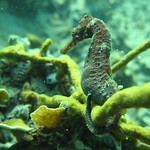
More photos from this internship can be found here.
This internship site is currently on hold and not accepting interns at this time.
Part of the Smithsonian Institution, this premier international research institute conducts scientific research and explorations of natural history at seven different terrestrial and marine field stations equipped with modern laboratories. Interns help support ongoing research on topics related to biology, climate change, ecology, soil sciences, and tropical forestry.
Given the prestigious nature of this host organization, this internship is highly selective and interns should be sure to indicate their second and third choices of IE3 Global programs in their application.
As part of the prestigious and internationally-renown Smithsonian Institution, this research institute maintains a series of research facilities in different marine and terrestrial locations on the Isthmus of Panama. Ongoing research here is particularly focused on biology, climate change, ecology, soil sciences, and tropical forestry.
The institute traces its 90-year history in Panama back to the construction of the Panama Canal, and the scientific interest at the time in surveying the flora and fauna of the area for the purpose of controlling insect-borne diseases such as yellow fever and malaria. Today the institute conducts scientific research and explorations of natural history throughout the Isthmus at seven different terrestrial and marine field stations equipped with modern laboratories. It is the world’s premier international research platform for groundbreaking research on tropical forests and marine ecosystems and their astounding biodiversity.
The institute employs approximately 35-40 staff scientists from around the world, in addition to postdoctoral investigators and tenured research associates. These scientists collaborate on 350 running research projects and publish over 400 peer-reviewed articles in scientific journals each year. Interns collaborate with scientists on a specific research project to which they have been accepted.
Interns will be matched with, directly assist, and be guided by principle researchers involved in specific ongoing research projects. Exact internship duties can vary widely depending on the intern’s skill set and prior experience, the specific topic of study, the location within Panama where they will be stationed, and their relationship with the principle researcher.
Illustrative tasks from past internships have included:
While this internship is not designed to support independent research projects, early communications between interns and researchers may lead to agreement on information access, guidance and scope for an intern’s secondary project.
Preliminary Matching Process:
Internship placements at this site depend on finding a match between the applicant’s interest and a suitable research project overseen by a scientist or research associate at the institute. Interested candidates are asked to look at ongoing research and fields of activity, and identify the top three to five projects in which they are most interested, bearing in mind that this organization is quite selective and interns may not be accepted to their first choice of project. Internship applicants must have a clear idea of what their interests and qualifications are, have thoroughly researched the projects of interest, and be able to articulate why they may be a potential fit.
To review current research and researchers of interest, please check out this document, starting on page 237. Do not reach out to the site or researchers—just use this document as a starting point to identify areas of interest for your further exploration that will inform your IE3 Global application and potential assessment interview. Further instruction will be provided to candidates who are accepted to IE3 Global internships for referral to this site.
Budgeting Note: Estimated costs are based on typical internship-related costs and a modest standard of living. Each intern’s costs will vary based on lifestyle choices (eating out vs. cooking, taking public transportation vs. taxis) and recreational spending (travelling on days off, hobbies, etc).
* No visa required for U.S. citizens
** Fees vary based on medical history and insurance coverage
Housing can vary significantly for interns on this program, depending on the location(s) of their research projects and on availability of the institute’s housing facilities.
In some cases, interns are housed in dormitories or in other forms of shared lodging at field sites. Interns should be aware that housing can be range from basic but comfortable to quite rural and rustic, depending on the nature of their project and their role within it.
If the institute’s housing facilities are not available, interns will be responsible for arranging their own lodging. Some basic guidance will be provided to help the intern locate suitable accommodations.
Check out pictures from this internship.
Fall: April 15
Winter: September 15
Spring: November 15
Summer:
-See Qualifications & Requirements section